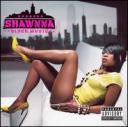While doing research on Lil Kim and Foxy Brown, I ran across this article by Lori A. Tribbett-Williams entitled “Lil Kim and Foxy Brown- Caricature of Black Womanhoond” that articulates the possible negative affects of having women, specifically Black women, hyper sexualized in the media. The article points out why these images are acceptable and fall into categories that have been set up long before the careers of Lil Kim and Foxy Brown.


“Among the most commonly depicted images of African-American womanhood is the image of the promiscuous “temptress” known as Jezebel. The new generation of rappers, through their X-rated lyrics and fashions, breathe new life into Jezebel, a mythical caricature and distorted representation of African-American womanhood….This Note focuses primarily on the racist and sexist social construct known as the Jezebel, and the proliferation of the Jezebel image into rap music, particularly the music of the new generation of African-American female rap artists. Lil’ Kim and Foxy Brown are affectionately known as “gangsta bitches” and are credited as the catalysts for the revolutionary sexual persona of the new generation. They have established their fame largely because of their “barely there” fashions. Female rapper BOSS commented that “tight clothes mean ‘weak lyrics.” ‘ That being the case, Lil’ Kim and Foxy Brown are saying nothing lyrically, with respect to the social status of African-American women, but talking loud, since they are among the most successful of the contemporary female rap artists. The new generation personifies what has perhaps been the most destructive image of African-American womanhood, an image that African- American women have for centuries tried to “live down.” The Jezebel image, as glorified by emerging female rappers, continues to be resurrected from history and projects a distorted image of African-American womanhood.”
Prior to reading this article, I didn’t really pay attention to how significant female rap artists are in contributing to the few portrayals of Black women in the media. There is no surprise that the most successful female artists are African-American since rap has been tied and so intimately connected to the Black community. Although black women are expressing themselves via music, (more…)

